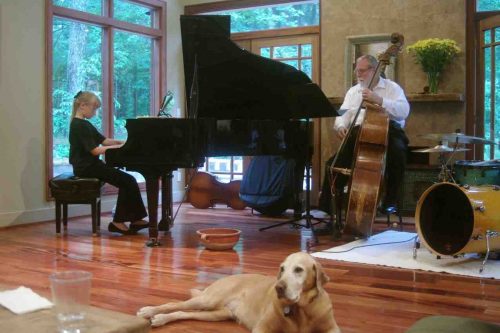| Type | Who Administers It | Example | Remarks |
| Primitive | Self | licking a cut | known in animal kingdom |
| Ceremonial | Group | healing session | known in animal kingdom |
| Popular | Self | taking chamomile or aspirin | whatever does not require prescription or knowledge |
| Supervised/Collaborative | Doctor/healer | chiropractor, primary care doctor | may involve prescriptions |
| Complex | Organization | hospital surgery |
Instead of judgmental division in to natural, holistic and conventional medicine we find it more practical to divide it into what is required to use it.
Music plays role in both primitive and ceremonial medicine as but it also has benefits beyond the ceremonial part. While music-therapy benefits are known, music has very little known side effects, except perhaps economic hardship that is experienced by musicians. Music can play a role in primitive medicine as form of distraction from pain or regulation of breathing, but role of music is much larger in ceremonial medicine.
Primitive self-applied medicine is some set of behaviors that we learn instinctively by observing others. Things like licking a cut (that is a technique involving enzymes in saliva to sanitize). Lot of this medicine is available not only to humans
Ceremonial medicine is a form of medicine done in larger social groups where the benefit is somewhat split between the individual and the group. Often those functions were reserved to the Medicine Man.
While this concept may seem to have vanished in the modern medicine, it has not. For example one could argue that constant testing for Covid in 2024 of people who are either completely healthy of visibly sick is a form of ceremony, because while negative tests results seem to more socially acceptable to their surrounding, there is no proof that they while Covid-negative are not capable of spreading other viral or bacterial infections, or even Covid itself, which is so popular one can hardly trace the source of infection.
Popular medicine as popular music is generally available. I would not use the term traditional because traditions change. For example, the term “Traditional Chinese Medicine” is inaccurate- often changing royal courts banned the previously sanctioned system of medicine. Today popular medicine is based mainly on western medicine. Popular self-administered medicine is subject to enormous marketing pressures from over the counter drugs and supplement manufactures.
Supervised medicine can be broadly categorized into sanctioned practices, which involve licensed practitioners operating within a prescribed framework, and alternative medicine, where oversight is provided by practitioners with less defined qualifications, such as physical therapists or specialists in herbal remedies.
We believe that the category of loosely sanctioned supervised medicine has significant potential for growth as more resources become accessible; however, it is unlikely to result in individuals becoming entirely self-sufficient in their medical care. The disparities in language and experience between conventional and alternative medicine have hindered effective communication between the two groups. Nevertheless, the increasing availability of medical data may facilitate the emergence of specialized roles, such as that of a “Balance Doctor.” Furthermore, popular supervised medicine faces considerable pressures from both pharmacological and other industries. Interestingly, we tend to harbor fewer doubts regarding the credentials of musicians when we listen to music than we do when seeking guidance from a doctor or healer.
